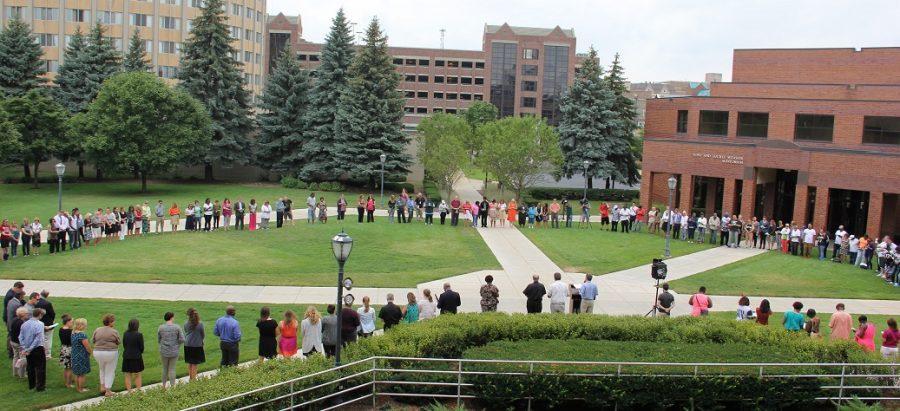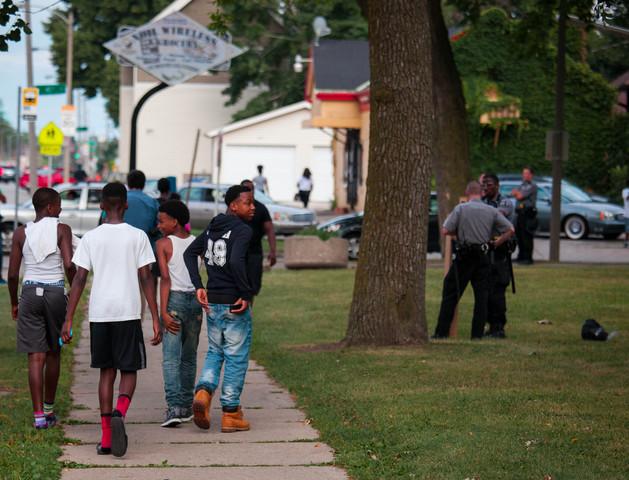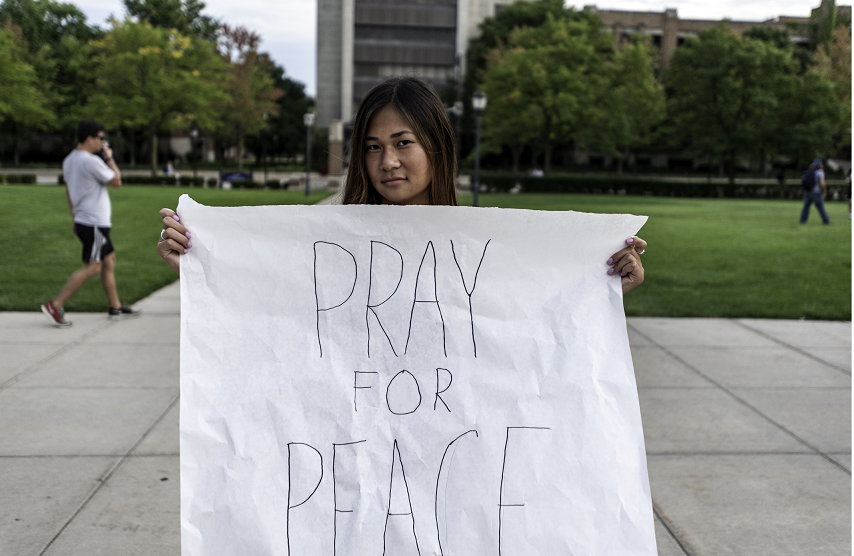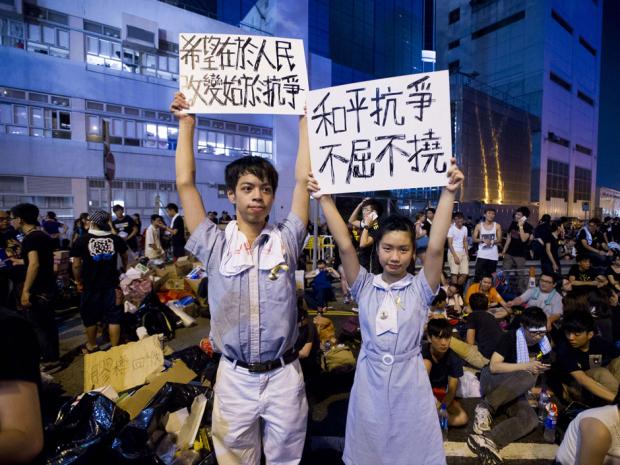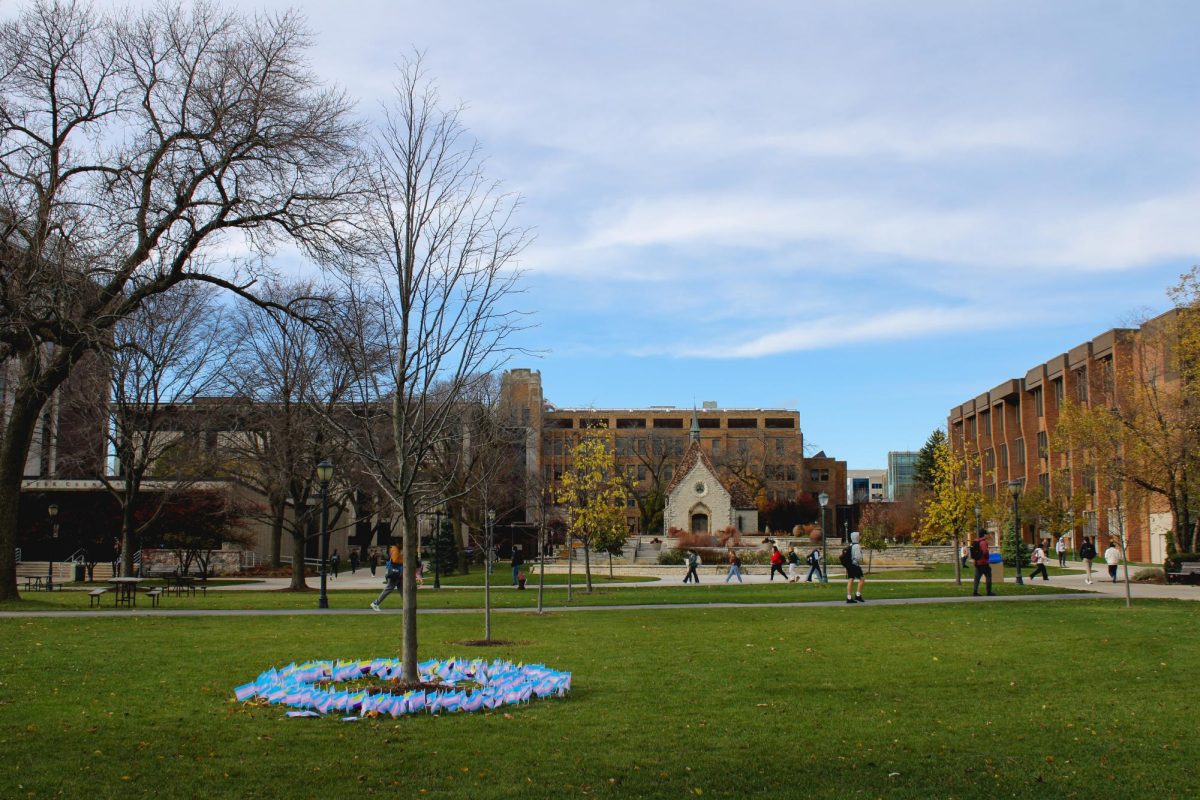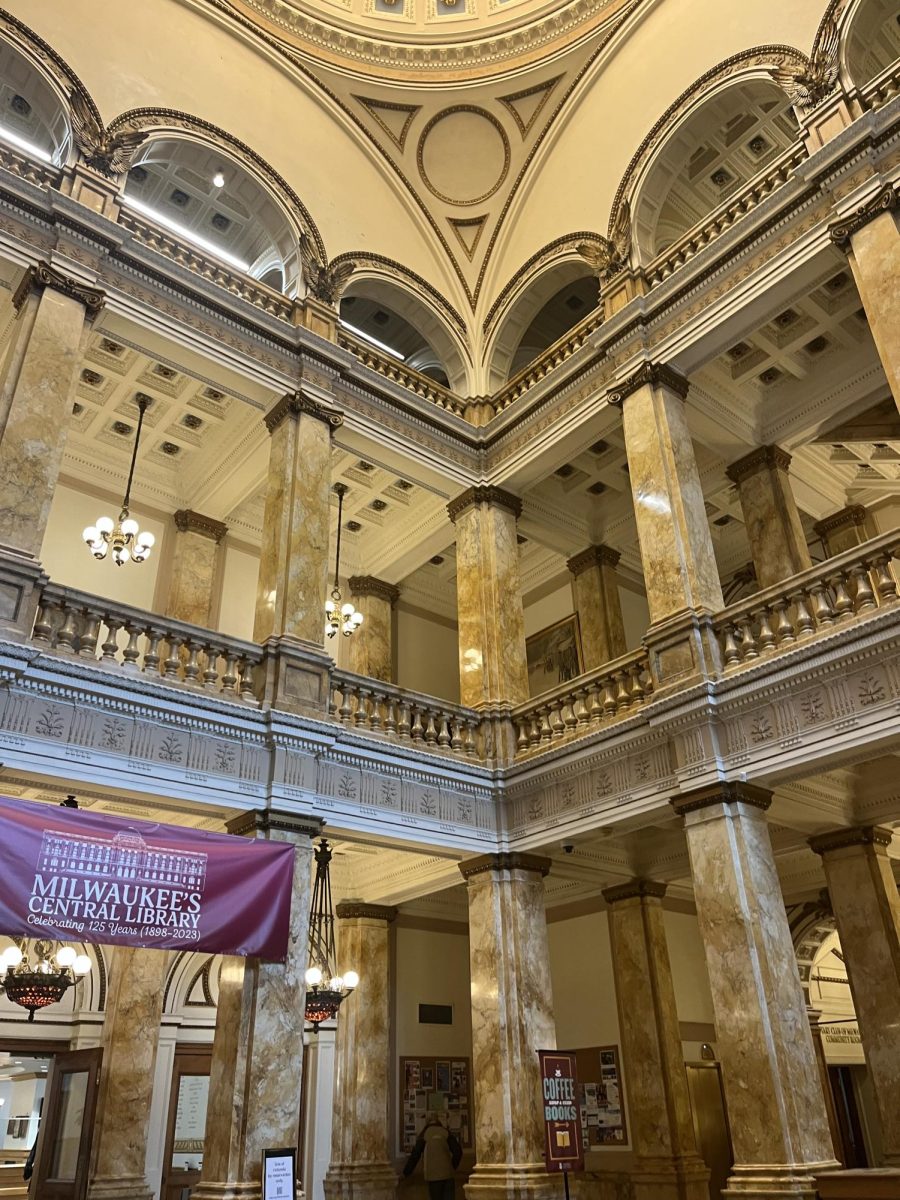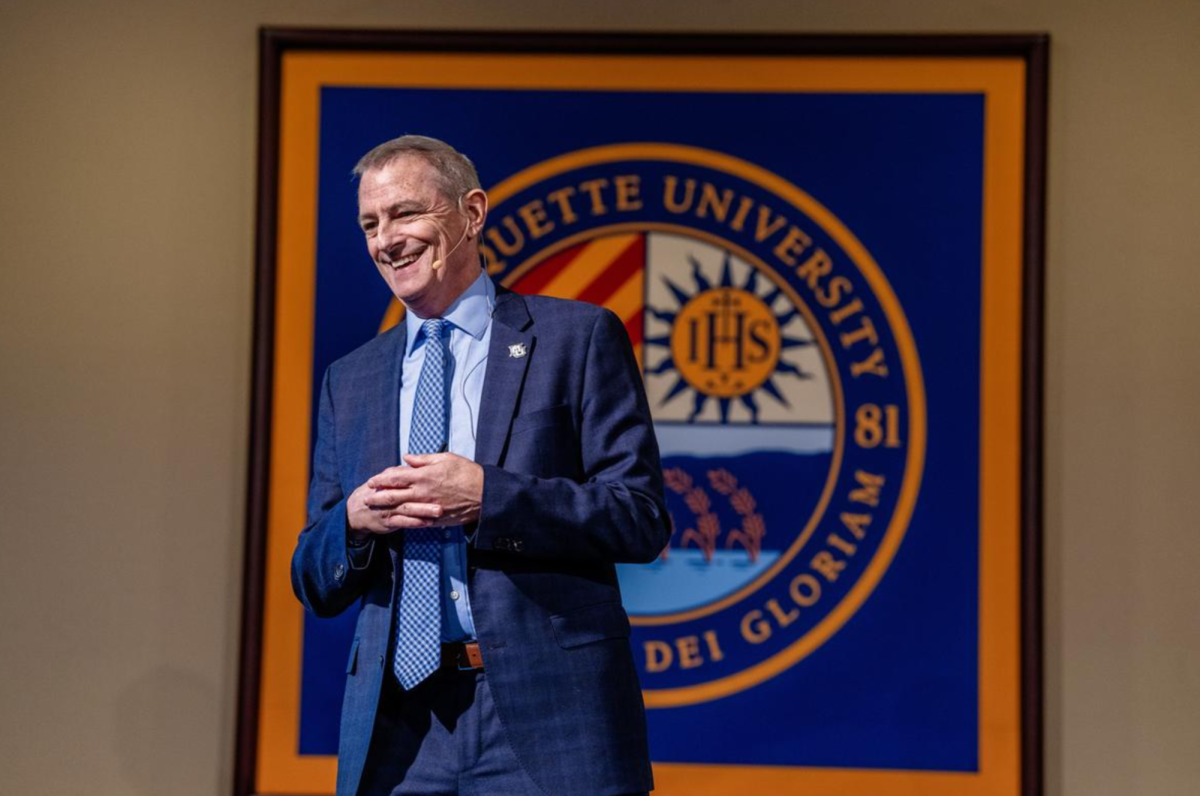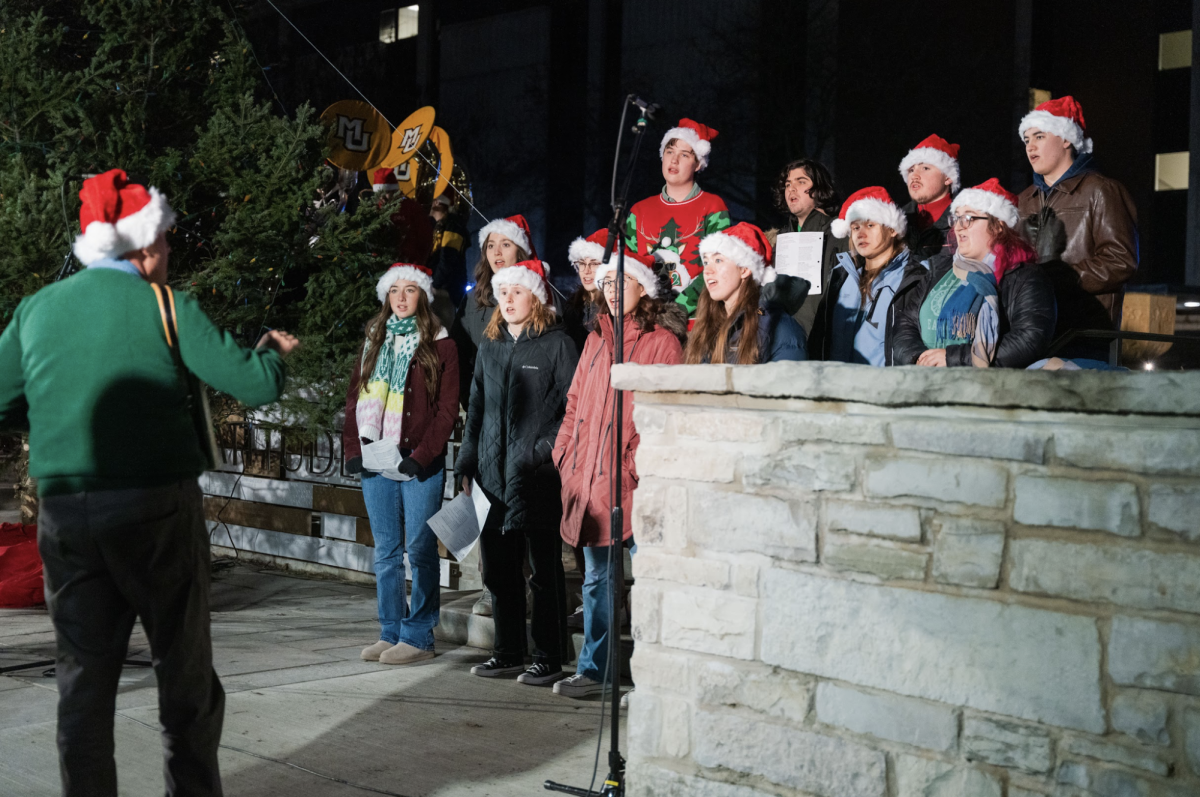As Milwaukee begins to recover from the death of 23-year-old Sylville Smith and the resulting civil unrest that erupted in the city, freshmen have moved into their first residence halls, faculty and staff have returned to campus and sidewalks are again filled with students. In the immediate wake of the events, texts and emails notified Marquette students and parents that those on campus should remain indoors to avoid conflict. On the Monday following the shooting, students, staff and community members assembled outside the AMU to pray for peace, while discussions of segregation, community division and need for change filled Facebook timelines, campus hallways and apartment buildings. As textbooks open and classes begin, where do we go from here?
Two weeks have passed since the unrest in Sherman Park and Marquette administration has shown genuine promise and determination to stand with the community. In a press conference Thursday, University President Michael Lovell and Provost Daniel Myers commented on the events and made proposals as to how the university can be “part of the solution.”
Myers announced that Marquette will hold a year-long campus forum specifically aimed at African American urban issues. Myers said throughout this school year, guest speakers and movies will be shown on campus to address real issues and foster a deeper understanding as to why these events occurred.
Smith’s death was simply the straw that broke the community’s back. For decades, predominantly African American communities in Milwaukee have suffered from police abuse, growing poverty and stark segregation. In the 1970s, Milwaukee housed thousands of manufacturing jobs and consequently, income for African American families soared 19 percent above the national average. The Wall Street Journal once referred to Milwaukee as the “Star of the Snowbelt,” having the second highest median household income in the nation.
Roger Bybee writes in the American Prospect that since the ’70s, the city has lost 80 percent of its manufacturing base to cheap outsourcing sites such as Mexico, causing annual income for African American families to plummet 40 percent below the national average. Today, just slightly over half of all African American males between the ages of 25 and 54 in Milwaukee are employed, opposed to 80 percent of white males in that same age group living in nearby suburbs. Although African Americans make up 16 percent of the metropolitan population, they receive only four percent of mortgage loans, forcing them to rent housing in poor, desolate neighborhoods. Milwaukee public schools are as segregated today as they were in the late 1960s and one of every eight African American males has served time behind bars.
“We know our students, we want to make a difference,” Lovell said, sounding hopeful that if students are determined and work alongside community members, real change can happen.
Myers called on students not to see themselves as people near the issues but as community members involved and affected just the same as the people of Milwaukee, saying honestly, “We do not represent, here at Marquette, the population that’s around us.”
The comments made by the administration last week are impressive. It is true that the Marquette community often disassociates itself from the rest of our neighborhood. Freshmen now living on campus were most likely told not to go past a certain block. Upperclassmen who live west of 19th St. are asked if they are afraid to walk home, and anything past 22nd St. is considered a barren wasteland in regard to recreational activities.
In an editorial last year, the Marquette Wire made the claim that “to change our community, we must change our rhetoric.” Crime clearly exists in Milwaukee and our neighborhood may not look like the one you grew up in. It can be hard to group yourself with a population whose social statistics do not necessarily reflect your own. But if we talk about our neighborhood as an “us and them” dichotomy, we cannot bring about real change.
Jesuit universities are established in specific areas to promote social, economic and spiritual growth, and Marquette has been one of Milwaukee’s most influential community leaders since its founding in 1881. Today, as our city mourns the death of another young African American male and the community cries out for justice and reform, Marquette is being asked to support the community that it has called home for over 100 years.
Our university is asking us, as students guided by our values who understand that we can make a difference, to aid those who are suffering and to seek solutions. The community needs us today more than it ever has. Marquette was built on this block for a purpose and we as students decided to come here for a reason. We have the opportunity to help our community. Let’s make it count.

